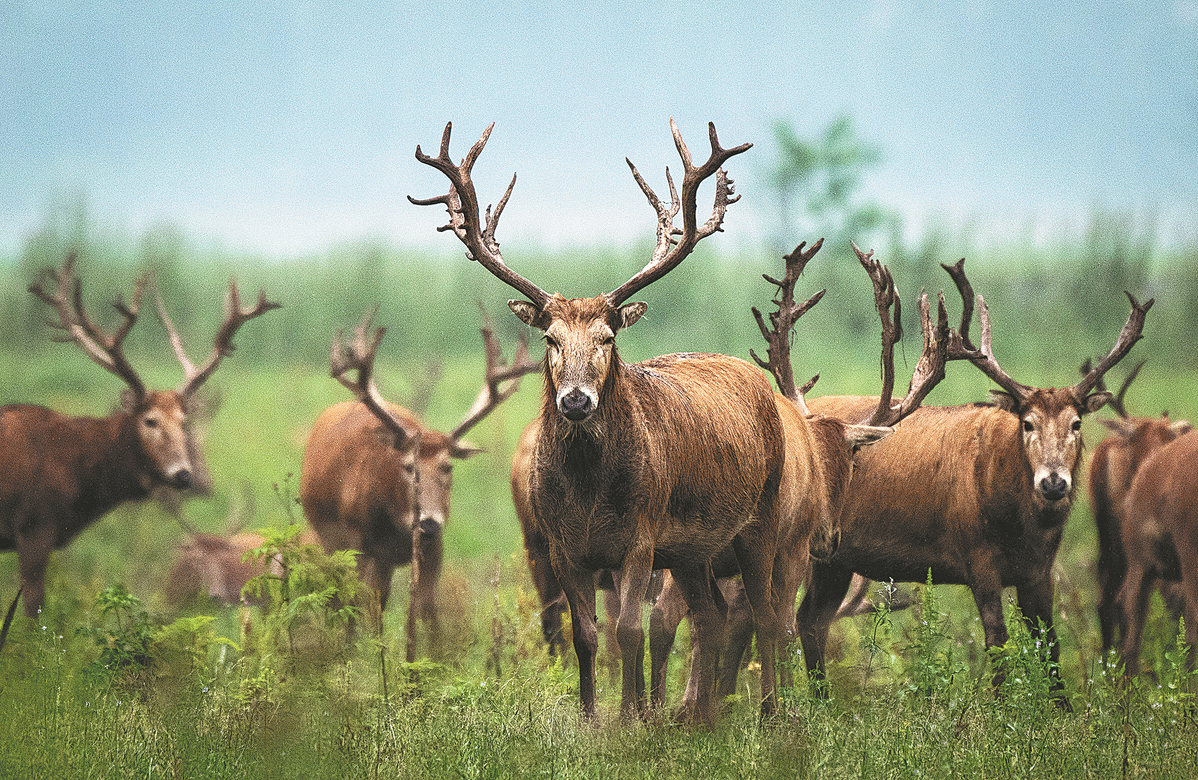China sets global example by meeting UN biodiversity goals


China has accomplished three of the 20 targets set in the 2010 United Nations biodiversity goals and basically realized 13 others, outperforming the global average performance, an official said on Thursday.
Since the adoption of the Aichi Targets in the COP 10 UN biodiversity conference in Japan almost 11 years ago, the world has generally failed to perform well in their implementation, said Cui Shuhong, head of nature and eco-conservation department at the Ministry of Ecology and Environment.
"As one of the countries that boast the richest biodiversity, Chinese government has earnestly implemented the Aichi Targets by specifying tasks and responsibilities," he told a news conference.
One of the goals China has achieved, for example, is Target 14, which aims to restore and safeguard ecosystems that provide essential services, including services related to water, and contribute to health, livelihoods and well-being, by 2020.
For the remaining four targets, the country has also made progress, he said. "Generally, the performance of China in implementing the Aichi targets are better than the average global level."
According to the fifth Global Biodiversity Outlook report made public last year, the world failed to achieve even a single one of the Aichi Targets, despite six of them partially realized.
Among the partially met targets are management of invasive species and conservation of at least 17 percent of terrestrial and inland water areas.
Cui, however, also noted a series of problems China needs to address for biodiversity conservation.
Despite the progress China has made, the country has not yet reached a balance between developing socio-economic development and conserving biodiversity, he said.
The country's law on biodiversity remains inadequate. Intensified efforts are still needed to improve China's capability on biodiversity observation, monitoring and early warning, he added.
"China is also facing a grim situation in controlling the invasion of alien species," he said.
As part of the country's efforts to ramp up biodiversity conservation, China will include the issue as one of the prioritized targets in the high-profile central environmental inspection, he said.
Staffed by officials from the ministry, the inspection teams are headed by minister-level officials. The inspectors report to a central leading group headed by Vice-Premier Han Zheng.
Cui said China will also strive to improve a supervision system on the access to genetic resources and benefit sharing, while promoting the establishment of an early warning and monitoring system for alien species.
The news conference was held in the lead-up to the COP 15 UN biodiversity summit, which is slated to be held in Kunming, capital of Yunnan province.
The biggest UN biodiversity summit in a decade, COP 15 is tasked with elaborating on the post-2020 global biodiversity framework and identifying new protection goals through 2030.
With the theme "Ecological Civilization — Building a Shared Future for All Life on Earth", it will be held from Oct 11 to 15 and then continue in the first half of next year.
- Chinese team designs robotic insect running swifter than cockroaches
- Photo exhibition in Xinjiang highlights China-US friendship
- 2.59 million candidates write civil servants' job test
- China launches Zhongshan Station in Antarctica in fight against climate change
- Chinese authorities strengthen cooperation to fight trans-border telecom fraud
- Consolidation of clinical referral system urged





































